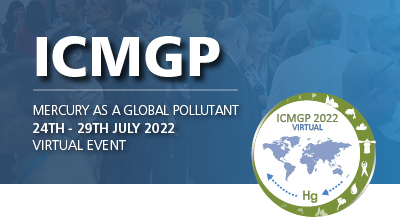| Abstract Title: | Likely Changes in Mercury Concentration in the Arctic Atmosphere and Ocean under Future Emissions Scenarios |
| Presenter Name: | Anne Soerensen |
| Company/Institution: | Swedish Museum of Natural History |
| Session: | Special Session - Climate-Driven Perturbations of Arctic Mercury Cycling |
| Day and Session: | Friday 29th July - Session Three |
| Start Time: | 13:00 UTC |
| Co-Authors: | Anne Soerensen,Amina Schartup,Helene Angot,Katlin Bowman,Noelle Selin |
Abstract Information :
Arctic mercury (Hg) concentrations respond to changes in anthropogenic Hg emissions and environmental change. This study, prepared for the 2021 Arctic Monitoring and Assessment Program Mercury Assessment, explores the response of Arctic Ocean Hg concentrations to changing primary Hg emissions and to changing sea-ice cover, river inputs, and net primary production. We conducted a model analysis using a 2015 Hg inventory and future anthropogenic Hg emission scenarios. We modeled future atmospheric Hg deposition to the surface ocean as a flux to the surface water or sea ice using three scenarios: No Action, New Policy (NP), and Maximum Feasible Reduction (MFR). We then forced a five-compartment box model of Hg cycling in the Arctic Ocean with these scenarios and literature-derived climate variables to simulate environmental change. No Action resulted in a 51% higher Hg deposition rate by 2050 while increasing the surface water by 22% and <9% at depth. Both ?action? scenarios (NP and MFR), implemented in 2020 or 2035, resulted in lower Hg deposition ranging from 7% (NP delayed to 2035) to 30% (MFR implemented in 2020) by 2050. Under this last scenario, ocean Hg concentrations declined by 14% in the surface and 4% at depth. We found that sea-ice cover decline exerts the strongest Hg reducing forcing on the Arctic Ocean while increasing river discharge increased Hg concentrations. When modified together the climate scenarios resulted in a ? 5% Hg decline by 2050 in the Arctic Ocean. Thus, we show that the magnitude of emissions-induced future changes in the Arctic Ocean is likely to be substantial compared to climate-induced effects. Furthermore, this study underscores the need for prompt and ambitious action for changing Hg concentrations in the Arctic, since delaying less ambitious reduction measures?like NP? until 2035 may become offset by Hg accumulated from pre-2035 emissions.



